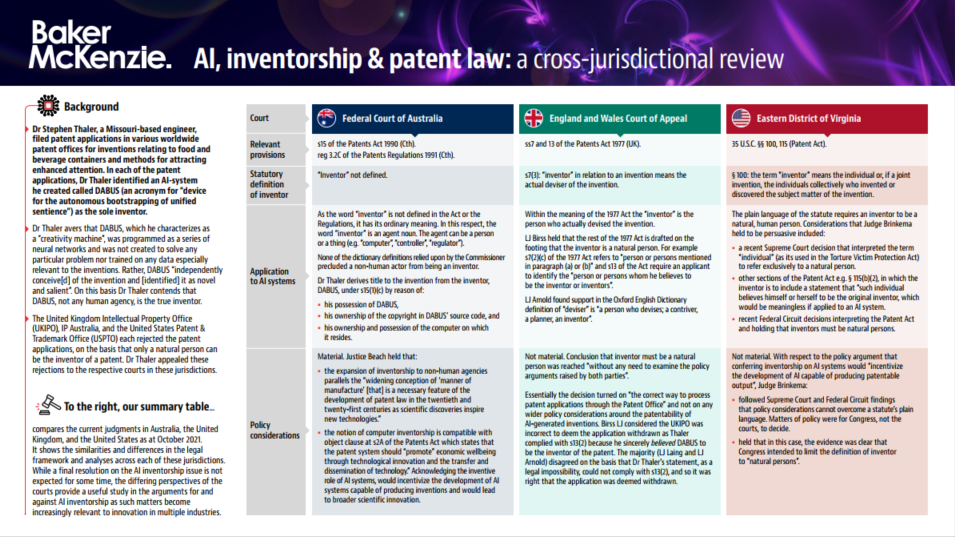Whether an AI system can be an inventor is a topical issue in patent law throughout the world. Our summary table of recent judgments in Australia, the UK and the US highlights the similarities and differences in how these jurisdictions have so far dealt with the issue.
While a final resolution on AI inventorship is not expected for some time, the differing perspectives of the courts provide a useful study in the arguments for and against AI inventorship, as such matters become increasingly relevant to innovation in multiple industries.




